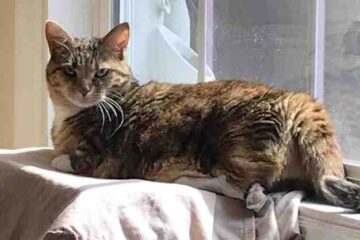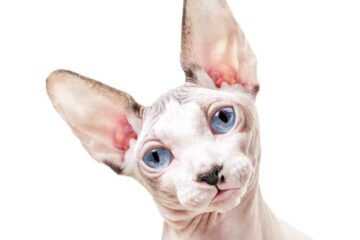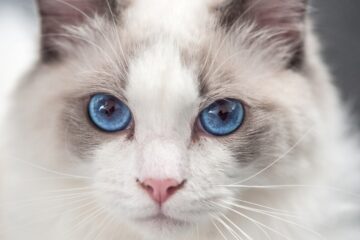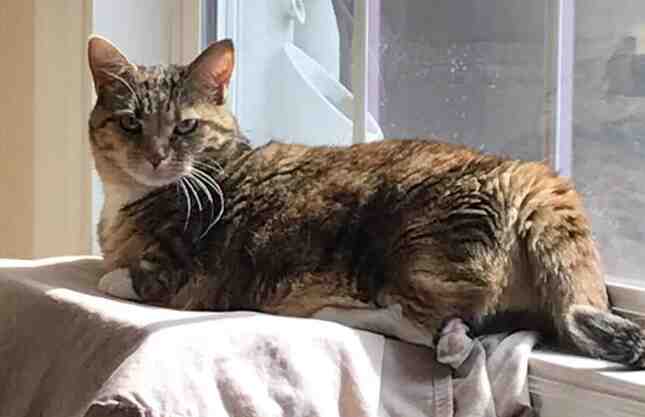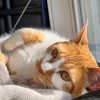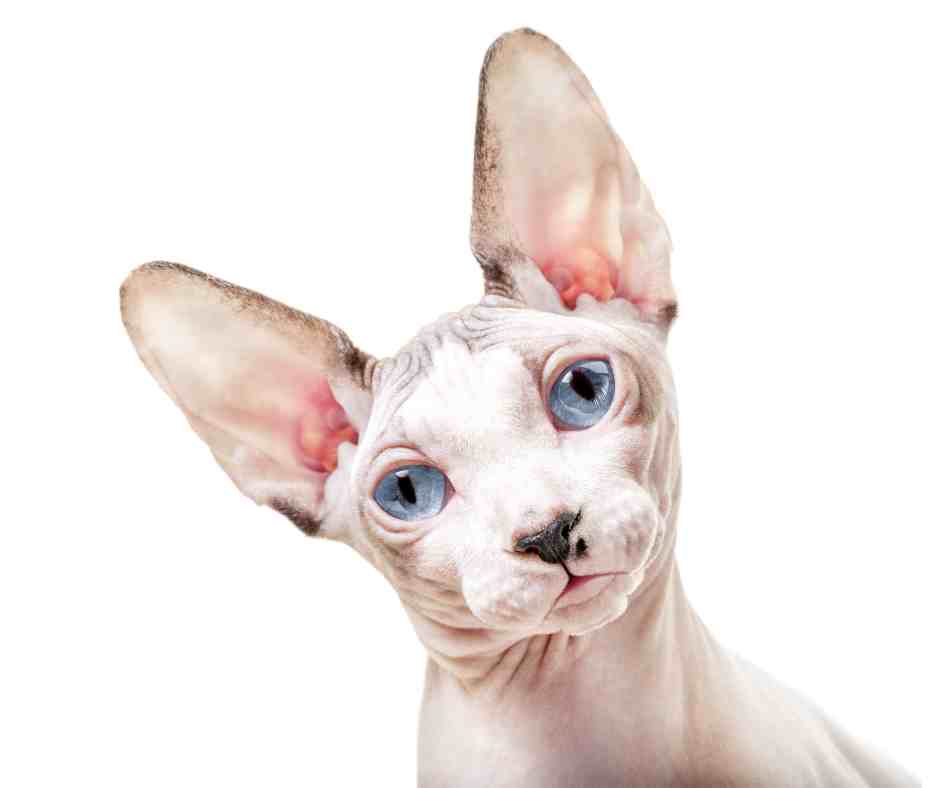
Sphynx Cat Breed Profile
Introduction
The Sphynx cat is one of the most distinctive and recognizable cat breeds due to its hairless appearance and striking features. Despite their lack of fur, Sphynx cats are known for their warm, friendly, and affectionate personalities. These cats are highly social and thrive on human interaction, making them excellent companions for those looking for a devoted and loving pet. With their unique look and endearing behavior, Sphynx cats are sure to capture the hearts of their owners.
Sphynx Cat Breed Facts
- Country of Origin: Canada
- Breed Group or Category: Hairless
- Height: 8-10 inches
- Weight: 6-12 pounds
- Lifespan: 8-14 years
- Average Price: $1,500-$3,000
- Hypoallergenic: No, but less allergenic for some people
- Good with Kids: Yes, very good with children
- Good with Other Pets: Yes, generally friendly with other cats and dogs
Sphynx Cat Breed History
The Sphynx cat originated in Canada in the 1960s. The breed began with a hairless kitten named Prune, born to a domestic cat in Toronto in 1966. Prune’s hairlessness was due to a natural genetic mutation. Breeders found this trait intriguing and began selectively breeding hairless cats to develop what would become the Sphynx breed.
Through careful breeding programs, the Sphynx was developed to not only preserve its hairless trait but also to enhance its unique physical characteristics and friendly personality. The breed was officially recognized by cat associations in the 1970s and has since gained popularity worldwide.
Sphynx Cat Personality
Sphynx cats are known for their outgoing, affectionate, and sociable nature. They are often described as “extroverts” of the cat world, loving to be the center of attention and enjoying the company of their human companions. Sphynx cats are highly interactive and love to play, making them great pets for families and individuals who can spend time engaging with them.
These cats are also very curious and intelligent. They enjoy exploring their environment and can often be found investigating new objects or climbing to high perches. Sphynx cats are known to be quite vocal, using a range of sounds to communicate with their owners.
Sphynx cats form strong bonds with their families and often follow their owners around the house. They thrive on human interaction and can become anxious or bored if left alone for long periods. Their affectionate nature makes them wonderful companions who love to cuddle and be close to their humans.
Sphynx Cat Appearance
The most distinctive feature of the Sphynx cat is its hairless body, which gives it a unique and striking appearance. Despite their lack of fur, Sphynx cats are not completely hairless; they have a fine layer of peach-fuzz-like down that gives their skin a soft texture. Their skin is loose and wrinkled, especially around the head, neck, and shoulders, adding to their unique look.
Sphynx cats have a muscular, medium-sized body with a broad chest and a well-rounded abdomen. Their legs are sturdy and well-muscled, with oval paws that have long, slender toes. The head of a Sphynx is wedge-shaped with prominent cheekbones and large, lemon-shaped eyes that can be any color. Their ears are large and open, adding to their alert and expressive appearance.
Sphynx Cat Health Concerns
Sphynx cats are generally healthy, but like all breeds, they can be prone to certain health issues. Responsible breeders screen for these conditions to reduce their prevalence.
- Hypertrophic Cardiomyopathy (HCM): A common heart condition in cats that can lead to heart failure.
- Hereditary Myopathy: A condition that affects muscle function and can lead to muscle weakness.
- Skin Conditions: Due to their lack of fur, Sphynx cats can be prone to skin issues such as sunburn, rashes, and fungal infections.
- Respiratory Issues: Sphynx cats can be more susceptible to respiratory infections due to their lack of protective fur.
- Dental Disease: Regular dental care is essential to prevent periodontal disease and other dental issues.
Sphynx Cat Exercise Needs
Sphynx cats are highly active and playful, requiring regular exercise to stay healthy and happy. They enjoy climbing, jumping, and exploring, so providing them with cat trees, climbing shelves, and plenty of interactive toys is important. Regular play sessions with their owners using toys like feather wands, laser pointers, and puzzle toys can help keep them mentally and physically stimulated.
These cats also benefit from social interaction with other pets. If you have other friendly pets at home, a Sphynx cat can enjoy playing and interacting with them, which can help meet their exercise needs.
Sphynx Cat Training and Behavior
Training a Sphynx cat can be a rewarding experience due to their intelligence and eagerness to interact with their owners. They can learn commands, tricks, and even how to walk on a leash. Positive reinforcement methods, such as treats and praise, work best when training Sphynx cats.
Behaviorally, Sphynx cats are known for their friendly and affectionate nature. They are typically good with children and other pets, making them ideal for multi-pet households. Sphynx cats are not known to be aggressive and tend to be very social and interactive. Ensuring they have enough mental and physical stimulation can prevent any behavioral issues related to boredom.
Sphynx Cat Grooming Needs
Despite their hairless appearance, Sphynx cats require regular grooming to keep their skin healthy. Their skin produces natural oils that would typically be absorbed by fur, so regular bathing is necessary to prevent oil buildup and skin issues. Most Sphynx cats need a bath once a week using a gentle, cat-safe shampoo.
Routine grooming should also include regular ear cleaning, as Sphynx cats can be prone to ear wax buildup. Regular nail trimming is also important to maintain their overall health. Although they don’t have fur to shed, Sphynx cats can benefit from a gentle wipe-down with a damp cloth between baths to keep their skin clean.
Sphynx Cat Care Needs
Caring for a Sphynx involves meeting their physical, mental, and emotional needs. These cats thrive on social interaction and should not be left alone for long periods. Providing plenty of attention, playtime, and companionship is crucial for their well-being.
A balanced diet is essential to keep Sphynx cats healthy. High-quality cat food that meets their nutritional needs should be provided, along with fresh water at all times. Because of their high metabolism, Sphynx cats may require more food than other breeds of similar size. Regular veterinary check-ups are also important to monitor their health and address any potential issues early.
5 Frequently Asked Questions about Sphynx Cats
- Are Sphynx cats hypoallergenic? No, Sphynx cats are not hypoallergenic. They produce less dander than furred cats, but they can still cause allergic reactions in some people.
- Do Sphynx cats get along with other pets? Yes, Sphynx cats are generally friendly and can get along well with other pets, including dogs and other cats, especially if they are socialized from a young age.
- How vocal are Sphynx cats? Sphynx cats are quite vocal and use a variety of sounds to communicate with their owners. They are known for their expressive and sometimes loud voices.
- Are Sphynx cats good with children? Yes, Sphynx cats are known for their affectionate and gentle nature, making them excellent companions for children.
- What is the average lifespan of a Sphynx cat? Sphynx cats have a lifespan of 8 to 14 years with proper care.
Is the Sphynx Cat the Right Breed for You?
Sphynx cats make wonderful pets for those who can provide them with the attention, care, and social interaction they need. They are best suited for families or individuals who are home often and can engage with them regularly. Their playful and affectionate nature makes them an ideal companion for families with children and other pets.
If you are looking for a unique and loving pet that enjoys being the center of attention, a Sphynx cat may be the perfect choice. However, if you prefer a low-maintenance pet or have severe allergies, another breed might be more suitable. With the right care and attention, a Sphynx cat can be a deeply rewarding addition to your home.
Further Reading
- The Cat Fanciers’ Association – Sphynx
- The Cat Fanciers’ Association provides comprehensive information about the Sphynx breed, including its history, personality, and care tips.
- VetStreet – Sphynx Cats
- VetStreet offers a detailed guide on Sphynx cat care, covering health concerns, temperament, and grooming needs.
- International Cat Care – Sphynx
- International Cat Care provides expert advice on the health, behavior, and grooming of Sphynx cats.
Thank you for your interest in our Sphynx cat breed profile.
Popular Posts
